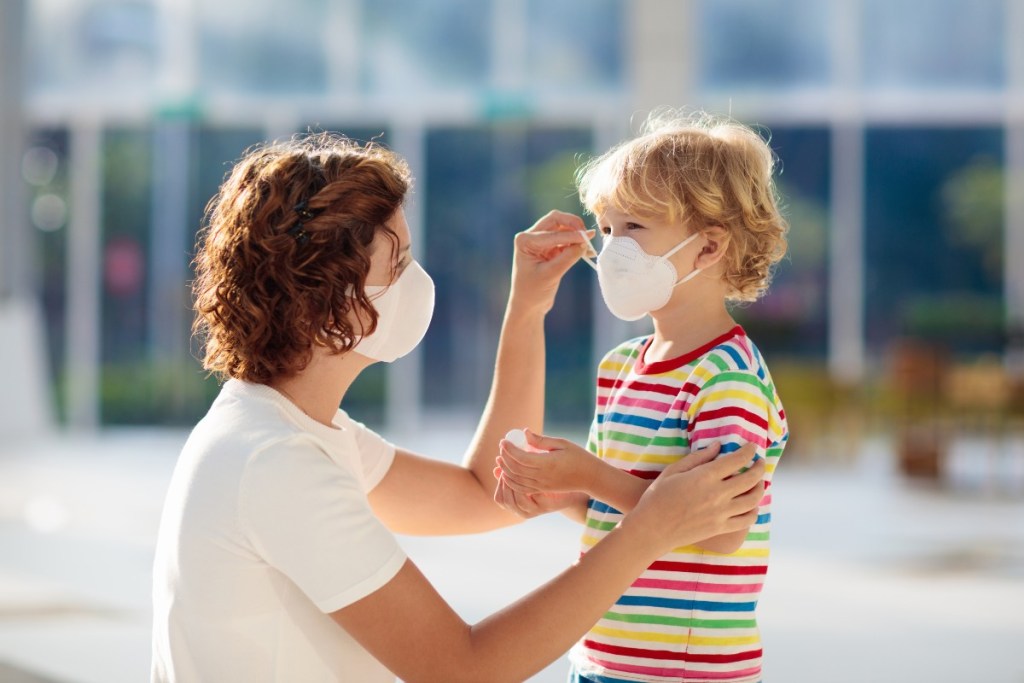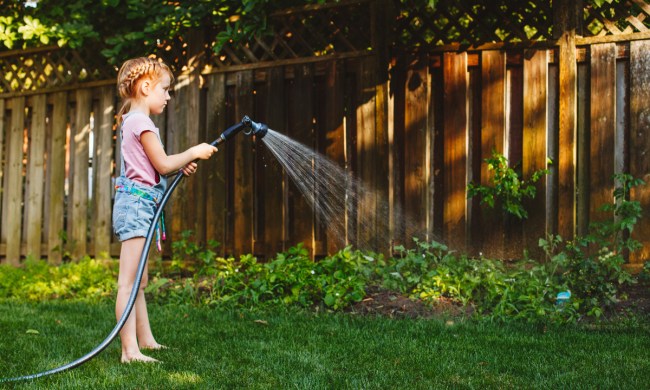We’re all ready to move on and resume real life again. The COVID-19 pandemic completely turned our worlds upside down in early 2020, and it’s been a roller-coaster ride ever since.
The good news? Vaccines have arrived — and extremely effective ones at that. While adults are eagerly rolling up their sleeves, it may be a bit longer until children can officially join the ranks of the vaccinated. Feeling eager? Nervous? Reticent? It’s okay; it’s normal to experience all the emotions after such a turbulent 12-plus months. The best thing you can do right now while you wait is educate yourself and stay on top of the latest guidelines. Here is what you need to know about vaccinating your kids.

When will your kids be vaccinated for COVID-19?
There are three vaccines widely available in the United States right now: A two-dose vaccine from Pfizer, a two-dose vaccine from Moderna, and a one-shot dose from Johnson & Johnson/Janssen.
As of April 19 this year, all people ages 16 and up are eligible to receive the COVID-19 vaccination — so some teenagers can get shots in their arms ASAP. This will be incredibly useful in stopping the spread among college-age students and older adolescents.
Those under 16 will have to hang tight a little longer, though. Pfizer recently announced results of a trial among children 12 to 15; its vaccine was found to boast 100-percent efficacy among that age group. Moderna is expected to yield similar results, and both companies should be seeking Emergency Use Authorization from the FDA soon. All three pharmaceutical companies are currently or plan to soon be studying their respective vaccines in younger kids (6 months-plus).
While there’s no definitive timeline, many in the research and medical field believe that 12- to 15-year-olds will likely be able to get the vaccine before the 2021/2022 school year kicks off. Children under 12 will probably have access toward the end of 2021 or at the beginning of 2022.

What can you do to protect your children?
Of course, waiting is frustrating — especially if you are now vaccinated and ready to make plans, mingle, and join civilization again. The happy news is that you mostly can. We all still need to take some proactive precautionary steps to help protect the unvaccinated public — and it’s a small price to pay for the greater good. Here’s what you should continue doing:
- Continue wearing well-fitting masks in public settings: When in public, keep those trusty masks covering your mouth and nose — and those of your children ages 2 and older. You want to find masks that have two or three breathable layers and fit snugly without gapping.
- Socially distance: Even with masks, you and your kids should still try to maintain social distance (6 feet) from people who live outside of your household and are unvaccinated. This is especially important when indoors in public settings.
- Encourage frequent hand washing: While transmission via surfaces has been shown to be rare, it’s still smart (and helpful) to continue encouraging proper hand hygiene. Make sure your kids are washing their hands for at least 20 seconds with warm water before eating, after playing outside, etc.
- Avoid mass events: At this point, even fully vaccinated individuals are advised to avoid congregating at large-style events.
The guidelines from the Centers for Disease Control and Prevention (CDC) continue to evolve as the situation develops. With more and more people vaccinated, there is some initial loosening of rules that will affect your family and your not-yet-vaccinated children.
The CDC has advised that fully vaccinated people can spend time indoors together without masks. Of course, until your children are vaccinated, this scenario might be a bit tricky. Fortunately, the agency has also stated that it’s okay for fully vaccinated people from one household to mingle with another single household of nonvaccinated, low-risk individuals. This means that if your kids don’t have any preexisting conditions that make them vulnerable, you can feel pretty good allowing a vaccinated extended family member or friend into your home.
COVID-19 vaccinations for kids are not available yet (unless your child is 16), but they will be fairly soon. In the meantime, we all need to continue doing our part to keep our children healthy and our communities safe. We’re at the home stretch — we’ve got this!


